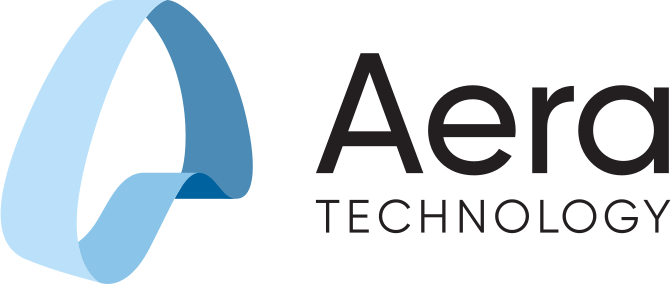Procurement
Streamline procurement operations to enhance efficiency, reduce costs, and build resilient supplier relationships.
Transform procurement processes with AI-driven automation and real-time collaboration. From PO lifecycle automation to spend visibility and supplier-buyer collaboration, you can optimize operations, reduce costs, and ensure consistent material availability. Leverage advanced tools to improve supplier selection, enhance contract coverage, and build supply resilience, ensuring sustainable growth and operational success.
Benefits
24%
Reduction in effort by procurement team
24%
Service level improvement in material-led loss
20%
Reduction in procurement buying with spend optimization
Featured Skills
Watch demo below to see how Aera can give you actionable insights into procurement spending to optimize costs.

- UnderstandsTracks spending across categories and suppliers to identify inefficiencies.
- RecommendsSuggests areas for cost reduction and improved procurement practices.
- ActsAutomates spending adjustments and prioritizes cost-saving initiatives.
- LearnsRefines spend optimization strategies to:
- - Reduce procurement costs.
- - Increase budget efficiency.
- - Maximize ROI on procurement investments.
Watch demo below to see how Aera can build a resilient supply chain by anticipating disruptions and securing alternatives.

- UnderstandsMonitors supply chain risks and identifies potential vulnerabilities.
- RecommendsSuggests alternative suppliers or inventory adjustments to mitigate risks.
- ActsAutomates supply chain adjustments to ensure continuity during disruptions.
- LearnsRefines resilience strategies to:
- - Prevent supply chain disruptions.
- - Improve operational stability.
- - Enhance risk management practices.
Accelerate invoice processing, reduce errors, and strengthen supplier relationships with the 4-way matching skill.

- UnderstandsAnalyzes invoices against contracts, purchase orders, and goods receipts to identify discrepancies.
- RecommendsSurfaces prioritized exceptions with financial impact, offering clear resolution options.
- ActsAutomates matching and executes decisions — from payments to credit notes — seamlessly across systems.
- LearnsContinuously improves accuracy and efficiency by learning from past resolutions, helping you:
- - Prevent overpayments.
- - Reduce the effort required for exception handling.
- - Improve supplier trust and accelerate payment cycles.
Streamline procurement operations by automating the purchase order lifecycle.

- UnderstandsAnalyzes procurement patterns to identify inefficiencies in PO management.
- RecommendsSuggests optimized workflows to minimize manual interventions.
- ActsAutomates PO creation, tracking, and updates, reducing effort and errors.
- LearnsRefines PO workflows to:
- - Decrease procurement operation time.
- - Improve process accuracy.
- - Enhance team productivity.
Enhance material availability and service levels through improved communication and coordination.

- UnderstandsAnalyzes supplier performance and buyer requirements.
- RecommendsProposes collaboration strategies to align supplier outputs with buyer needs.
- ActsAutomates information sharing and joint planning to avoid material shortages.
- LearnsRefines collaboration models to:
- - Prevent material-led losses.
- - Improve service levels.
- - Strengthen supplier relationships.
Identify the most reliable suppliers to ensure quality and consistency.

- UnderstandsEvaluates supplier performance metrics and historical data.
- RecommendsProposes the best-fit suppliers for specific categories or requirements.
- Acts Automates supplier selection and contract negotiations.
- Learns Improves supplier scoring models to:
- - Enhance supply chain reliability.
- - Reduce procurement risks.
- - Increase supplier performance.
Optimize procurement efficiency by ensuring comprehensive contract coverage.

- UnderstandsIdentifies gaps in contract coverage for critical categories.
- RecommendsProposes contract updates or new agreements to mitigate risks.
- ActsAutomates contract creation and renewal processes.
- LearnsEnhances contract optimization strategies to:
- - Reduce procurement delays.
- - Improve compliance.
- - Ensure consistent supplier performance.
Key Decisions Needed
- What criteria do we use to evaluate and select the best-fit suppliers to improve reliability and reduce procurement risks?
- How can we optimize supplier collaboration to enhance material availability.
- What action should we take to achieve cost savings through spend visibility and optimization.
- How can we ensure supply resilience and contract coverage to mitigate risks.
How Aera Helps
- Automates PO lifecycle processes to reduce effort and improve efficiency.
- Enables real-time collaboration between suppliers and buyers to prevent material shortages.
- Provides actionable insights into procurement spending for cost savings.
- Builds supply chain resilience with predictive insights and automated adjustments.
Key Decisions Needed
How Aera Helps
Automates PO lifecycle processes to reduce effort and improve efficiency.
How Aera Helps
Enables real-time collaboration between suppliers and buyers to prevent material shortages.
How Aera Helps
Provides actionable insights into procurement spending for cost savings.
How Aera Helps
Builds supply chain resilience with predictive insights and automated adjustments.
Related Skills
![]()
Inventory
Automate inventory decisions to optimize service levels, reduce costs, and increase operational efficiency.

![]()
Demand
Automate demand planning to reduce loss, improve accuracy, and optimize inventory levels.

![]()
Order
Automate order management decisions to increase fulfillment speed, accuracy, and customer satisfaction.

![]()
Control Tower
Gain end-to-end visibility and insights to streamline operations and enhance decision-making.

![]()
Logistics
Automate logistics decisions to optimize cost, service levels, efficiency and sustainability

![]()
Revenue
Boost revenue and profitability with smarter trade promotions, media investments, and pricing strategies.

![]()
Finance
Automate financial planning and forecasting to drive efficiency, accuracy, and strategic decision-making.

Related Resources
Chief Procurement Officers: Four Key Decision Intelligence Trends
Future Now Webinar Series
Procurement as a Catalyst for Supply Chain Transformation: Driving Revenue and Reducing Costs
In the dynamic and competitive global marketplace, businesses constantly seek innovative ways to gain an edge ...
Improving Collaboration with CMOs and Tier-N Suppliers in Pharmaceutical Manufacturing Using Decision Intelligence
As pharmaceutical supply networks become more global, specialized, and time-sensitive, the pressure to modernize how they operate is growing fast.
